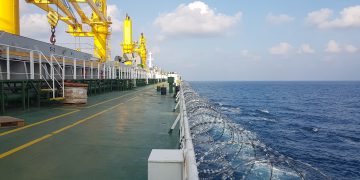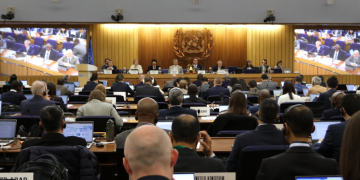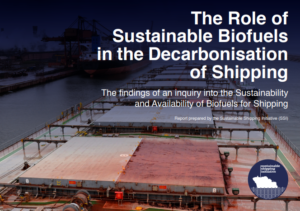The Sustainable Shipping Initiative (SSI) launched a report during COP25, on December 11, highlighting the shipping industry’s path towards sustainability, and presenting the industry’s perspective on biofuels and other alternative fuels through an inquiry facilitated by sustainability non-profit Forum for the Future.
Up to now, according to reports shipping in responsible for producing around 2-3% of global carbon dioxide (CO2) emissions, with virtually all 50,000 or so merchant ships burning heavy fuel oil (HFO) or marine distillate oil (MDO) or liquefied natural gas (LNG).
Thus, in line of the industry’s goals to be in line with IMO’s 2020 sulphur cap and meet the goals of the Paris Agreement, zero-carbon fuels are an ideal option; Yet, the sector has to ensure their availability and their production from either renewable electricity, biomass or natural gas with Carbon, Capture and Storage (CCS).
It is not yet clear which of the potential zero-carbon alternatives to fossil fuels has the winning combination of availability, sustainability and competitiveness.
Biofuels are an ideal option for the industry; Yet, they are a controversial topic of discussion, with question focusing not only on adversesustainability impacts arising from their use, but also whether they will be available in sufficient quantities to meet the needs of different sectors.
Therefore, to get a better insight into the industry’s perspective, SSI along with sustainability non-profit Forum for the Future commissioned an inquiry into the sustainability and availability of biofuels for shipping.
SSI members were engaged and consulted throughout the process. This report outlines the findings of this inquiry.
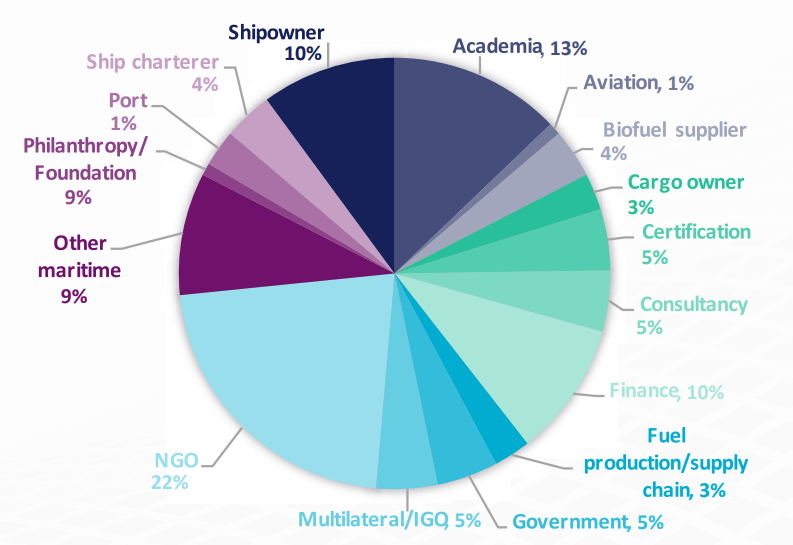
Sustainability issues around biofuels:
Biofuels are linked to a variety of environmental, social and economic impacts.
Indirect Impacts: Given that they are difficult to monitor and measure their estimations vary and the results of a particularly study are typically questioned.
According to SSI’s inquiry, the majority of the stakeholders consulted have a clear preference for any biofuels to be sourced from municipal, agricultural and/or forestry waste streams rather than purpose-grown crops.
However, this preference for residues and waste streams was not unanimous: a number of stakeholders proposed that purpose-grown crop feedstocks sourced within regions with strong land governance in addition to clear carbon and biodiversity credentials would be viable to produce biofuels.
Several projections have been made regarding the future availability of sustainable biofuels.
Many industries are either already using biomass feedstocks or they announced that they intend to use biomass feedstocks, looking to replace fossil fuels or to reduce carbon emissions in their sectors.
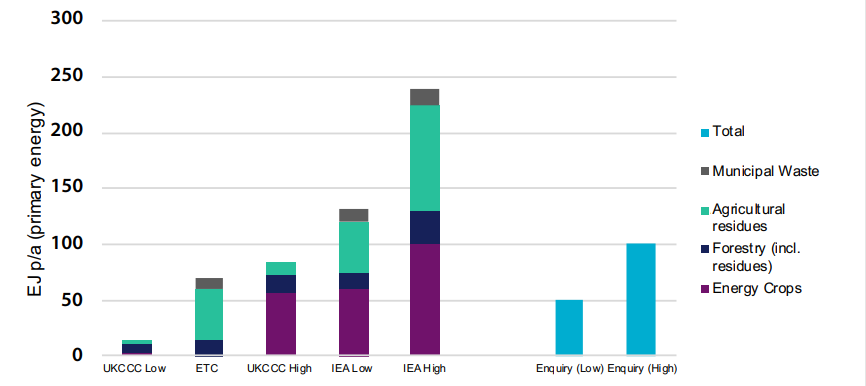
Conclusions
1) The role of biofuels in the future of decarbonisation
The majority of stakeholders agreed this would fall in the 10-30% range. Further, stakeholders anticipated that biofuel use would be higher in 2030 than 2050, implying this is a short rather than long-term solution.
2) The potential use of biofuels to accelerate early decarbonisation
There is a potential for shipping to use sustainable biofuels whilst sustainable bio-feedstocks are underutilised. However, depending on the supply-demand factors, there is uncertainty on the duration of this supply, with some stakeholders suggesting it could last through much of the 2020s.
3) Scaling of sustainable biofuels
Many of the stakeholders considered sustainability certification to be a pre-requisite in order to give the market confidence in biofuel use. However, not all were convinced that certification could ensure sustainability.
4) Supply-demand balance
It is suggested that a biomass-based decarbonisation pathway for shipping comes with considerable supply risks and as a consequence also poses risks related to their price.
5) Risk associated with the use of biofuels
All stakeholders who supported the use of biofuels considered certification to be a prerequisite to ensuring the transparency and sustainability of biofuel supply chains. However, others considered current use of sustainability certification schemes to be insufficient.
One potential option for the introduction of biofuels into the shipping sector is to use bio-feedstocks from waste and residue rather than from purpose-grown energy crops, which our stakeholders deemed a lower sustainability risk.
6) The role of biofuels and innovation in the shipping industry
There is potential for the maritime industry to play a constructive role in establishing a sustainable bio-economy.
7) The need to cooperate with other sectors and players
In order to ensure that a functioning and sustainable bio-economy emerges, coordination and engagement across all interested sectors and the entire shipping value chain (ports, cargo owners, fuel producers, investors, insurers, regulators, etc) is essential, which is similar to what IMO’s Secretary General, Kitack Lim, highlighted in a Symposium talking about collaboration to successfully reach the 2020 sulphur cap.
To learn more on biofuels, click herebelow






